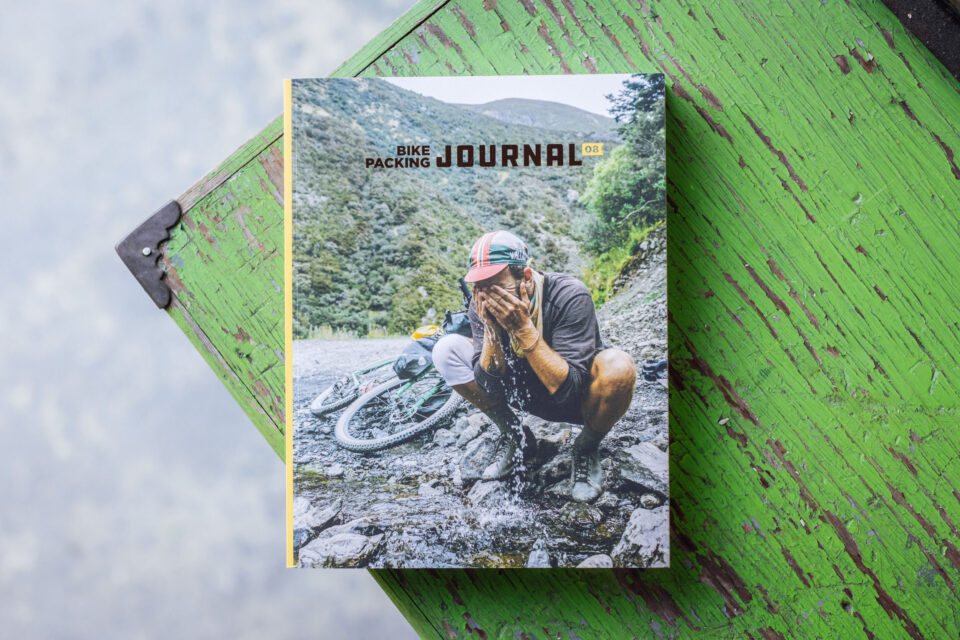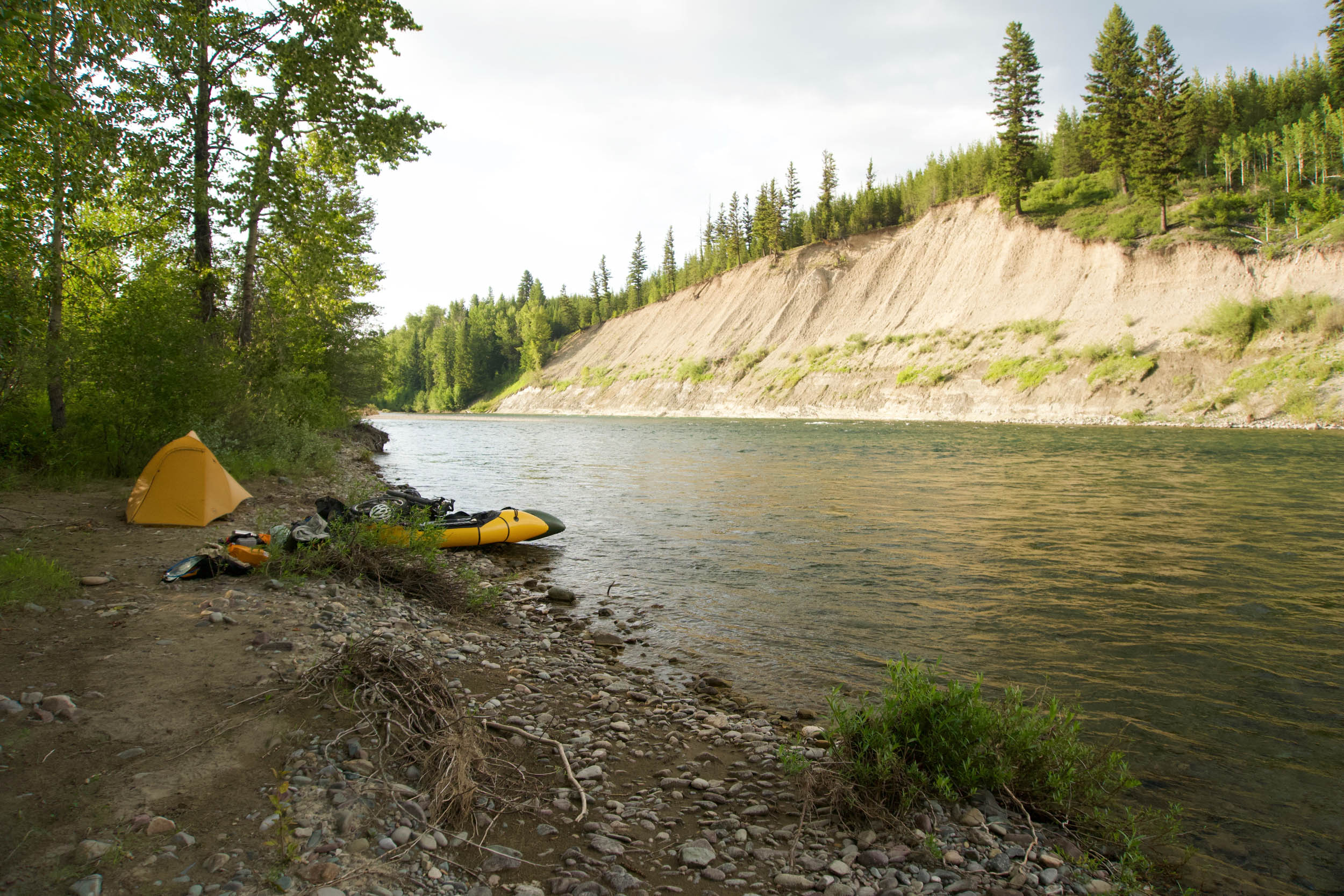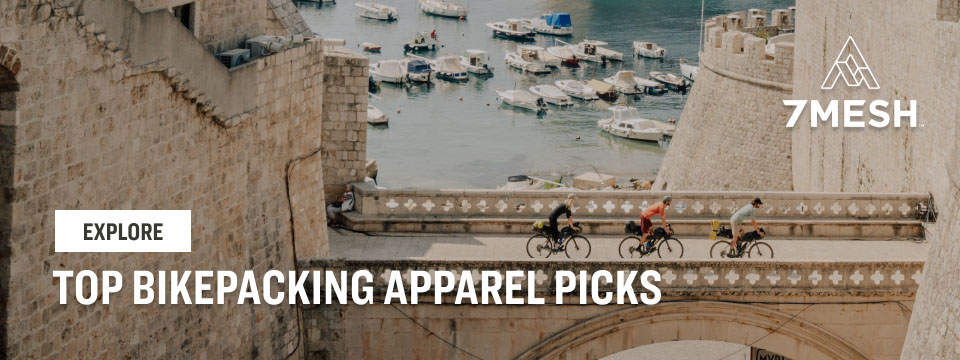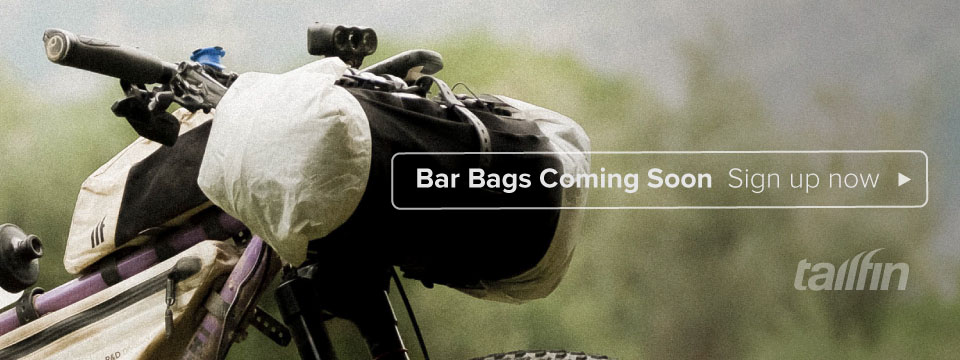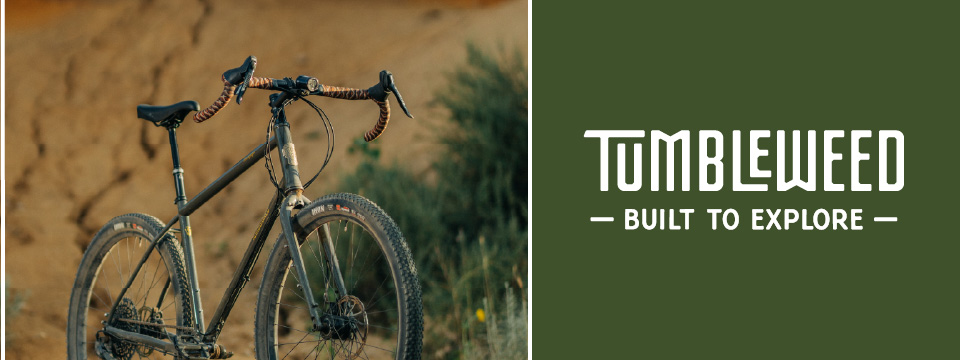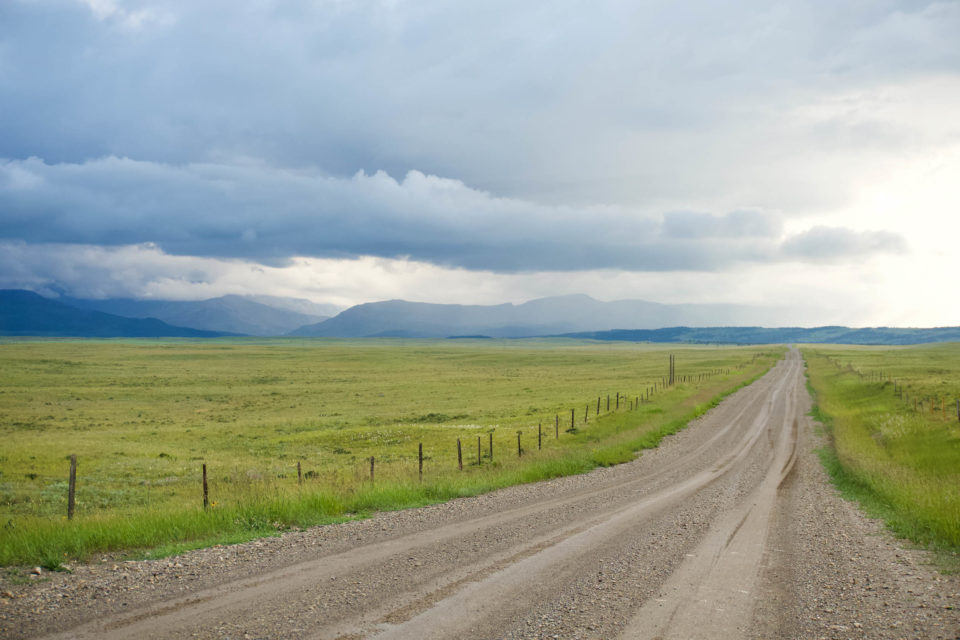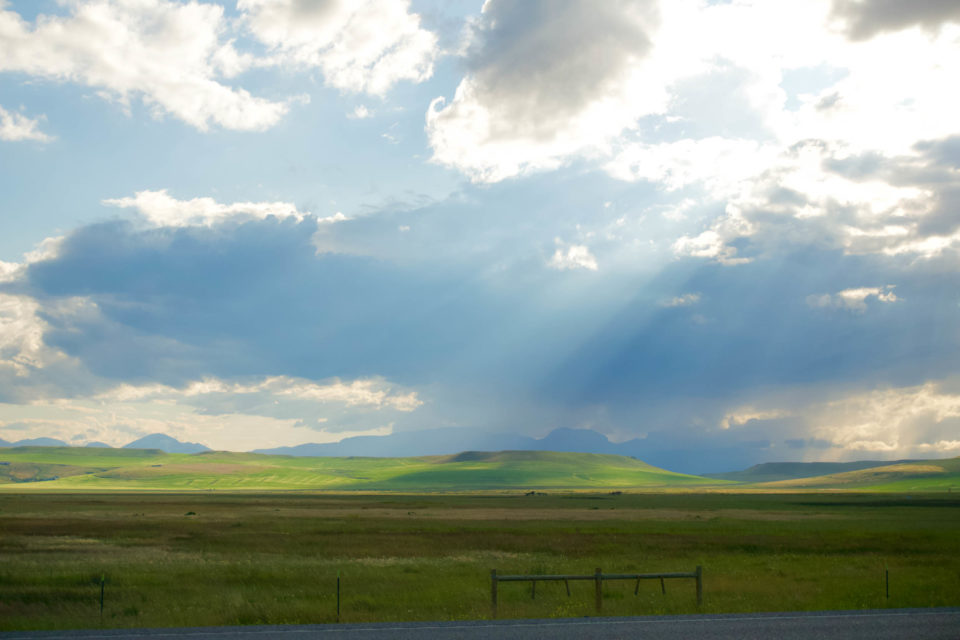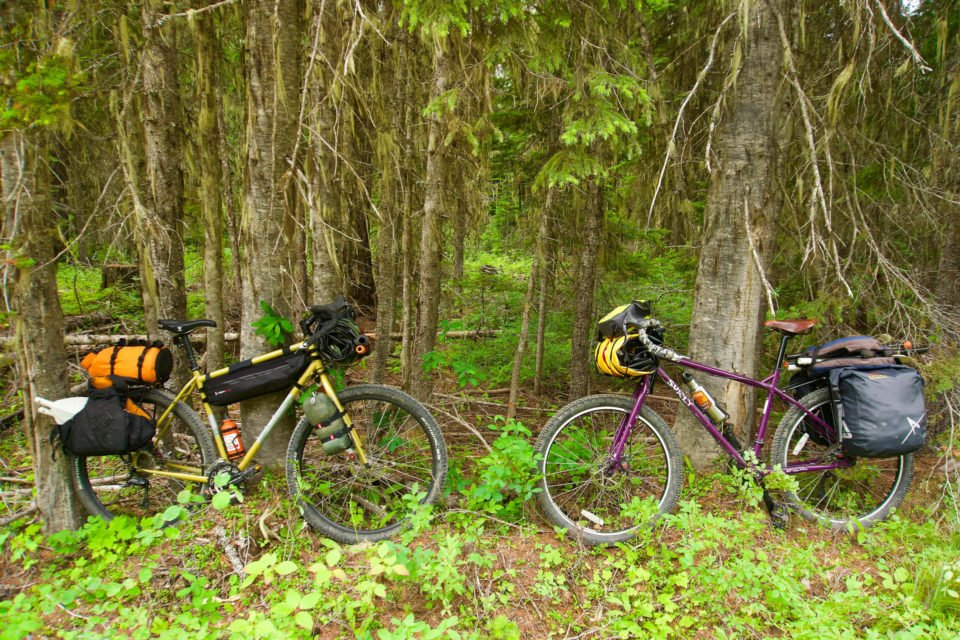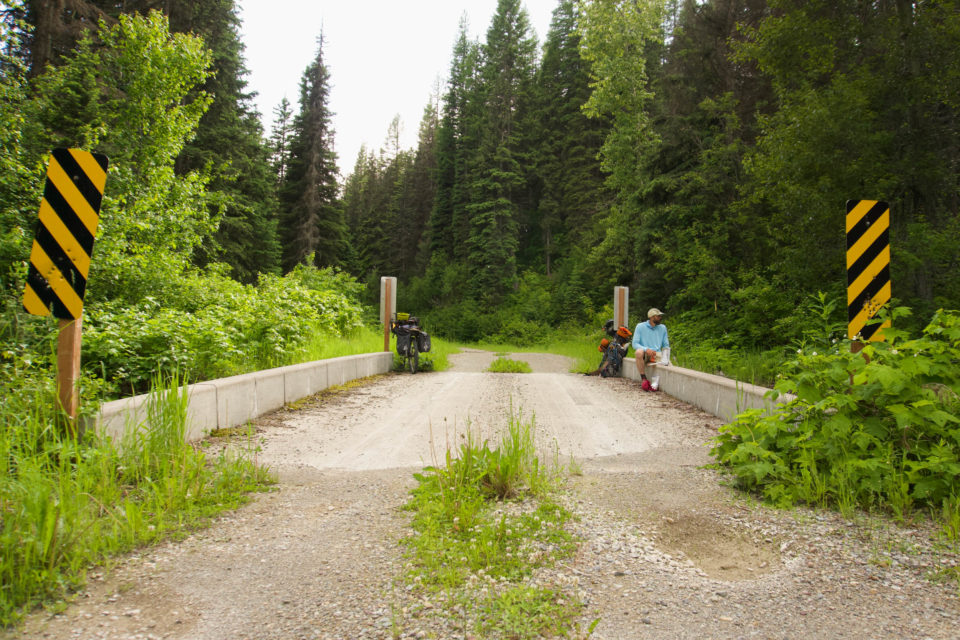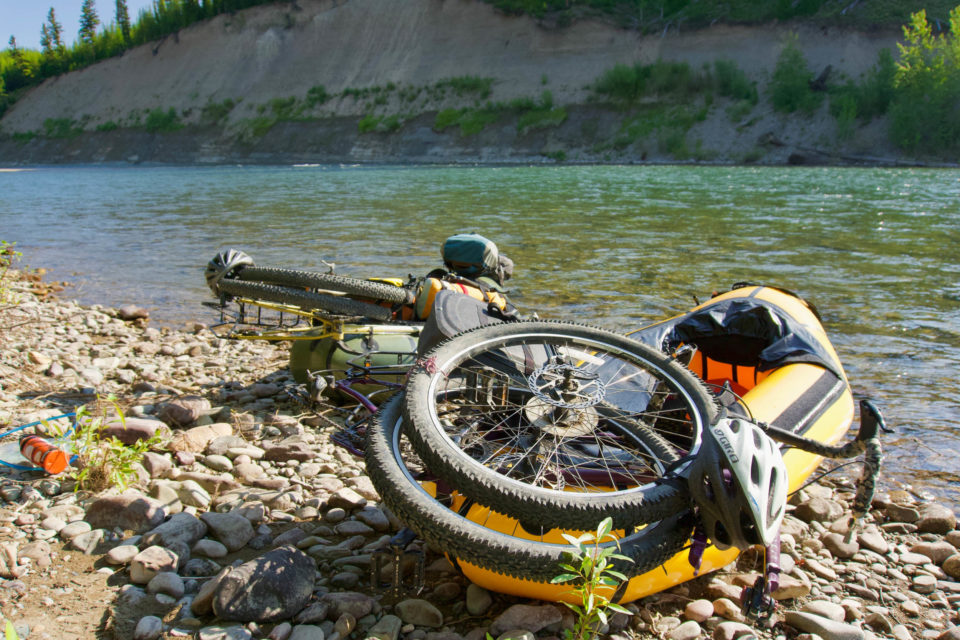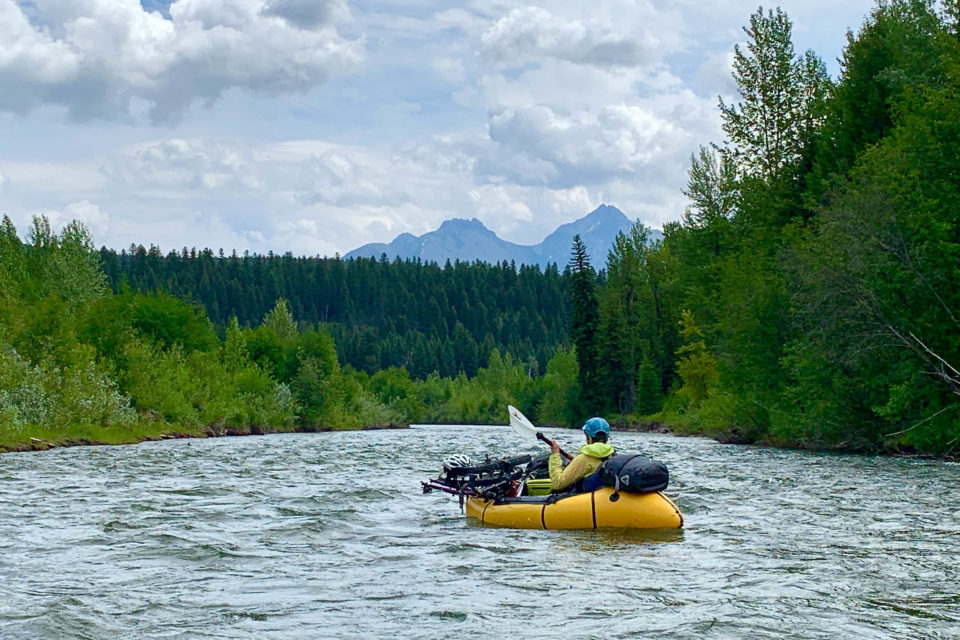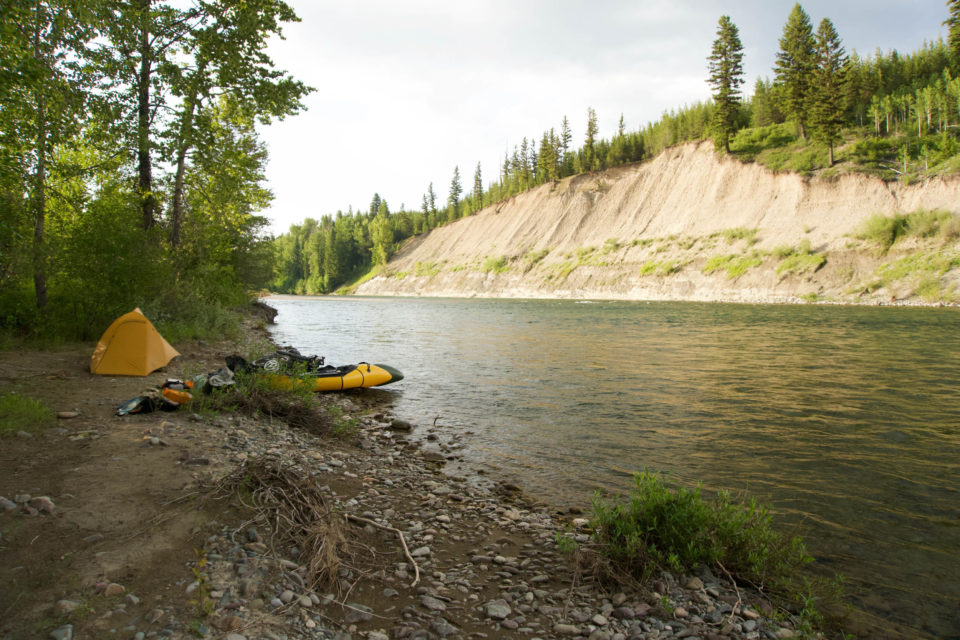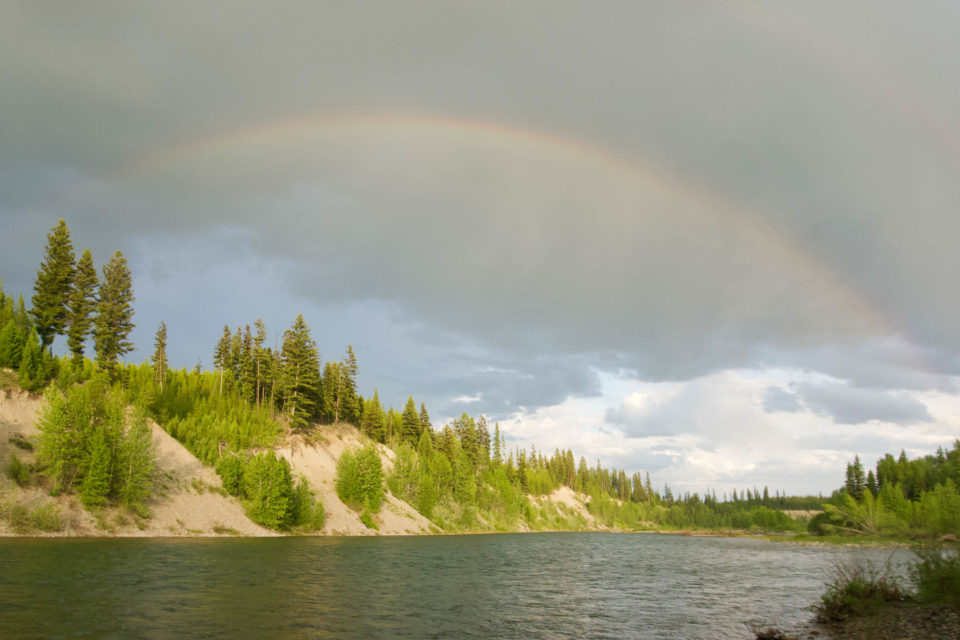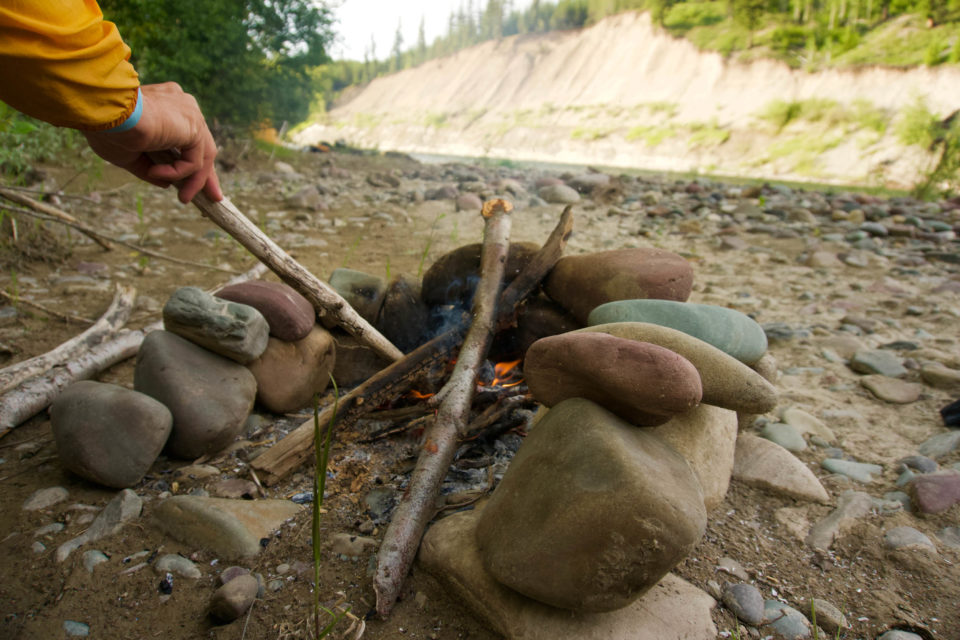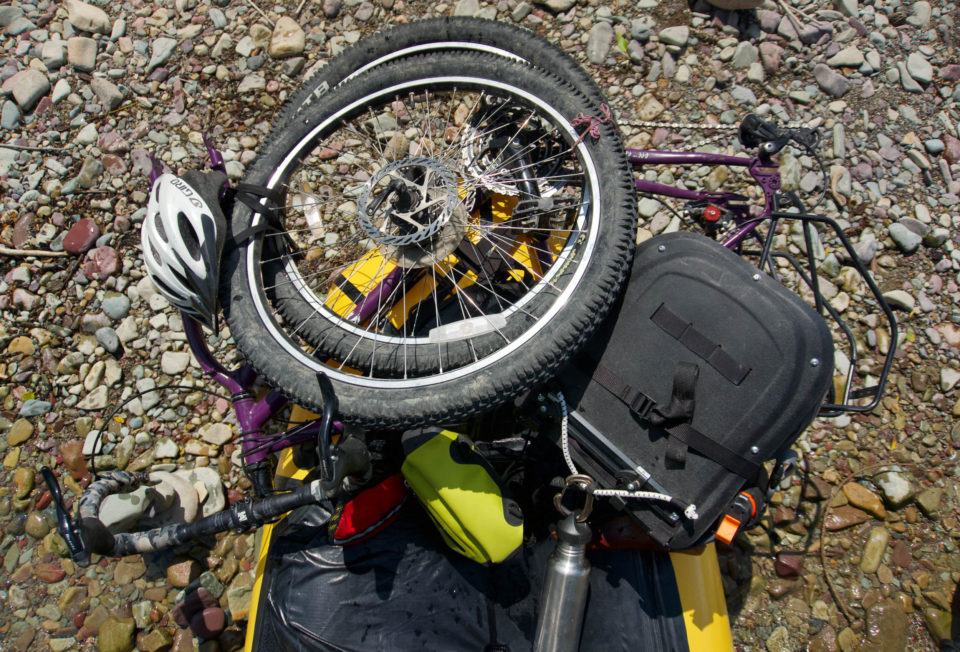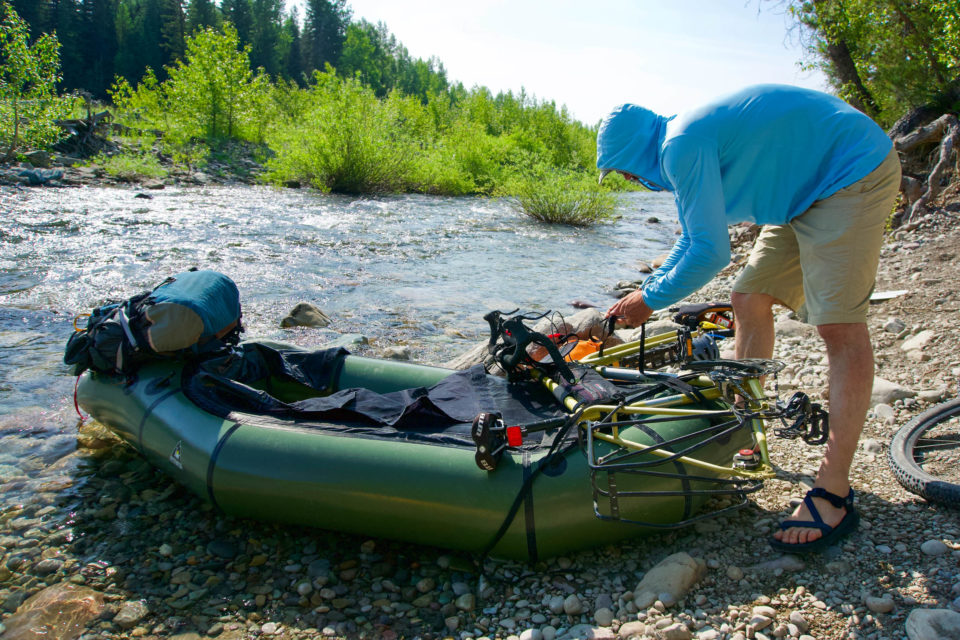Keeping North: Piecing Together the Crown of the Continent
Share This
Following a bikerafting trip through Montana’s Whitefish Range and the area around Glacier National Park, Tara Kramer offers this reflection on how maintaining an open perspective toward adventure can lead to surprising outcomes, rewards, and challenges. Find her story here…
Words and photos by Tara Kramer (@taramkramer)
The first night I sat in exhaustion and a sticky tent. Mosquitoes buzzed loud outside the mesh. My hair caked to my forehead, my legs smeared with mud, birds singing calmly. The river was steady through the trees, waiting there for morning. Flowers spread so green, so wet and welcome after last year’s fires.
We were camped hundreds of feet from Canada at a campground with no site markers. The border crossing was closed and fenced, but customs agents lingered. Polite and inquisitive, they’d stopped me on the road earlier to ask if I’d missed the turn to Eureka. No, we were heading this way, to the road end at the river, there at the border.
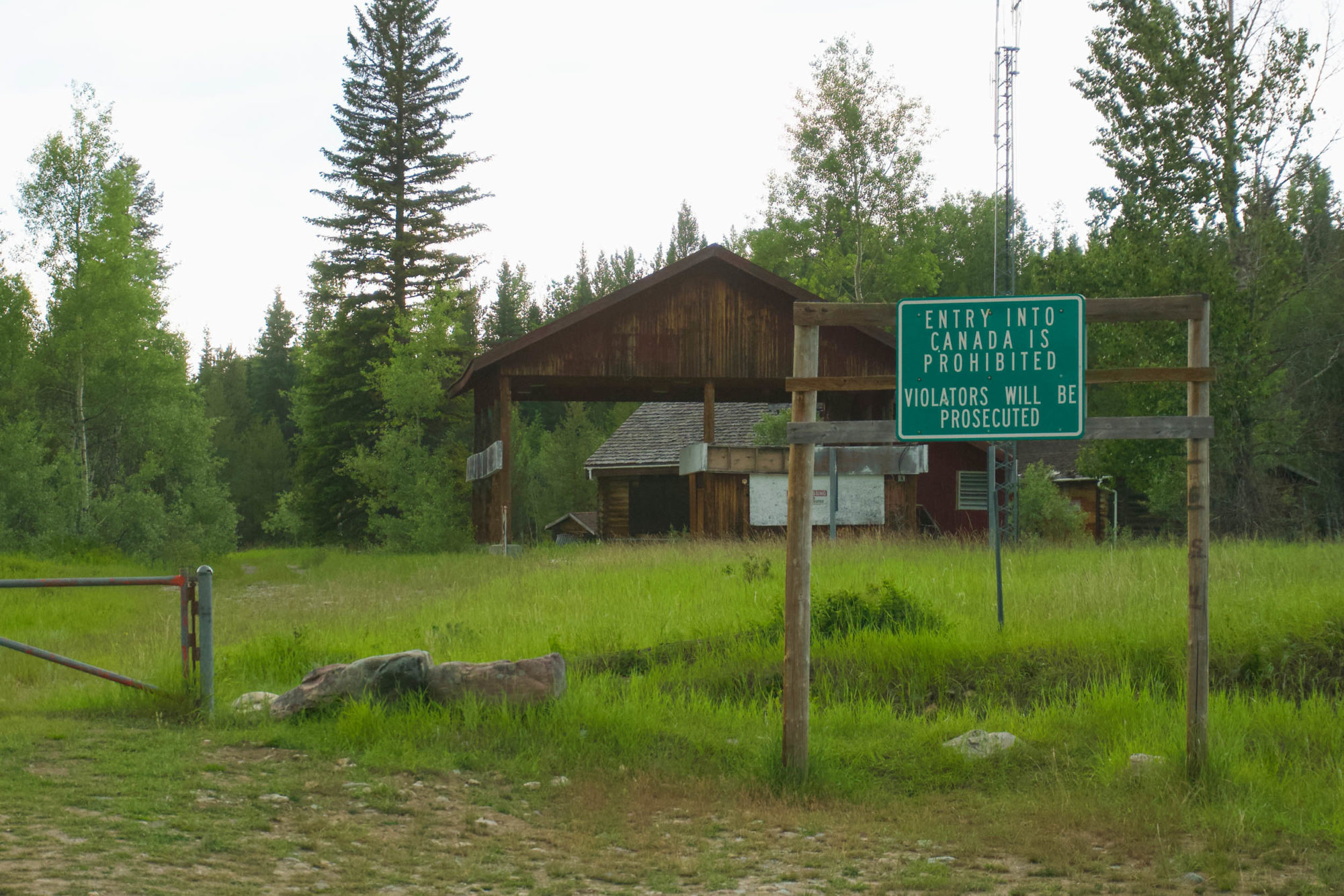
We left home on the Fourth of July and drove north just after dinner. We’d packed fast. Nick had just gotten home from a long work trip, probably to Washington or Alabama. I can’t remember, and I doubt he could either. The trip was in the midst of years of only work. Long hours on the road for him, in hotels, eating in the cab of their work truck. To build a serious savings, find stability we’d rarely had, for the health insurance I now depend on. I’d finished another week in the office, numb, obliged, not knowing when the empty routine would pass.
After most of a decade living how we wanted, on the road, where we wanted, my soul hurt. The sudden shift from fieldwork to desk life crushed me. His spirit seemed locked away. We were broken, cold, flat. We groveled and gnashed at escape. This skeletal attempt was leaving us darker.
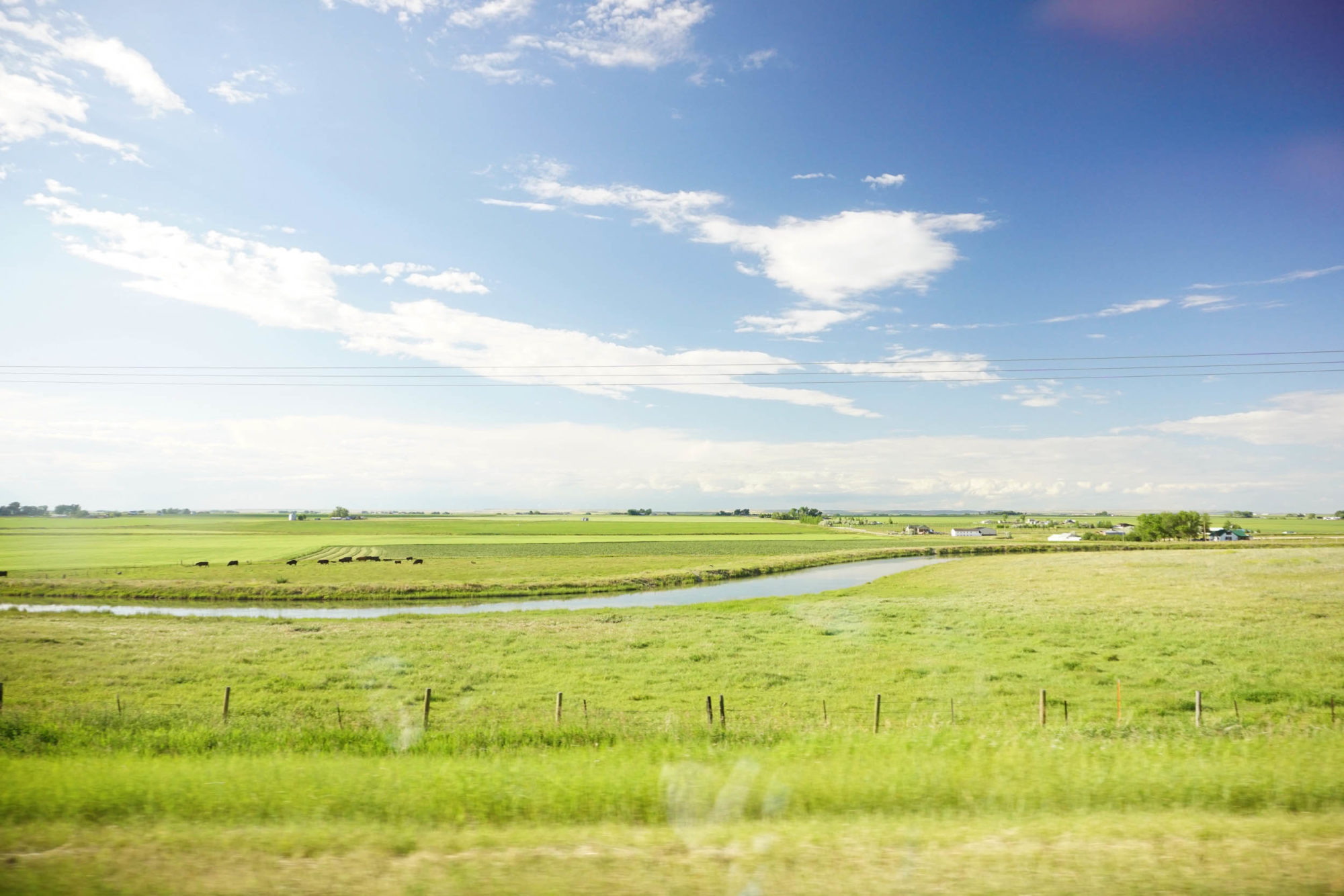
We missed our exit a few hours into the drive and kept north on the interstate along the Rocky Mountain Front. We redirected back toward the mountains, past the Log Cabin Cafe and the Buckhorn Bar of the small towns along the way. The fields of dryland farming were still green, the camas just ending their bloom, the creeks running clear again deep below the loamy horizon. Not near enough to the mountains to reach national forest, we drove to a small square of BLM land. Above lower Birch Creek and along a few junipers and sage and a gated two-track with a public land sign.
Even then, we only had ideas and optimism and the momentary relief at just having packed and left. I didn’t know where we were going anymore. I didn’t know how’d we make anything work. I didn’t want to care that we had no defined plan, but I did. And I knew Nick did, too. We protected the days, and the pressure of the fleeting moments weighed heavy on the hours.
Later we’d learn that grizzlies had been spotted up that prairie creek the same night we slept under a cheap tarp in the drizzle. We both opened our eyes wider when we heard the news, relieved to know the bears were making it back into the prairie. Regretful that we’d cooked right there under our tarp.
But the next morning we didn’t yet know about the bears. We woke early in that field and only made coffee for the drive across the corner of the Blackfeet Indian Reservation. To stand in line at the ranger station, to see what backcountry sites were available, to consider one of our ideas. We hesitated about restrictions in the national park, about too many people, about giving up the autonomy we cherished in piecing together our own trip.
A few days before leaving home we’d learned that the reservation had changed regulations to restrict river camping. It made sense with the increase in visitors, decrease in civility, and need to consider their space with caution. Another time, another year, maybe we’d drive the gravel roads and chat with someone ranching along the river, ask about spending the night on their gravel bar. Often people in this rolling country offer before we mention a thing. A kindness that’s rare and passing. We get to chatting about the weather or the wind or mostly we look unusual with bikes and boats and at least one bright jacket or shirt. We want to move back to this kind of quiet, but the knot of obligations is tight. Demands are thick.
As an alternative we’d linked trails and creeks and small lakes on the map of Glacier National Park. We thought the loop possible with packrafts and on foot. A few long days hiking between available campsites and some cautious days on the water to allow for frequent logjams and portages. But standing in line that morning, scanning campsites on the computer with the ranger, and studying their maps, we hesitated. Not this year, not after heavy years of following along. Staring into the largest wilderness in the lower 48 and vast tracts of national forest and BLM land, we wanted to define our own time.
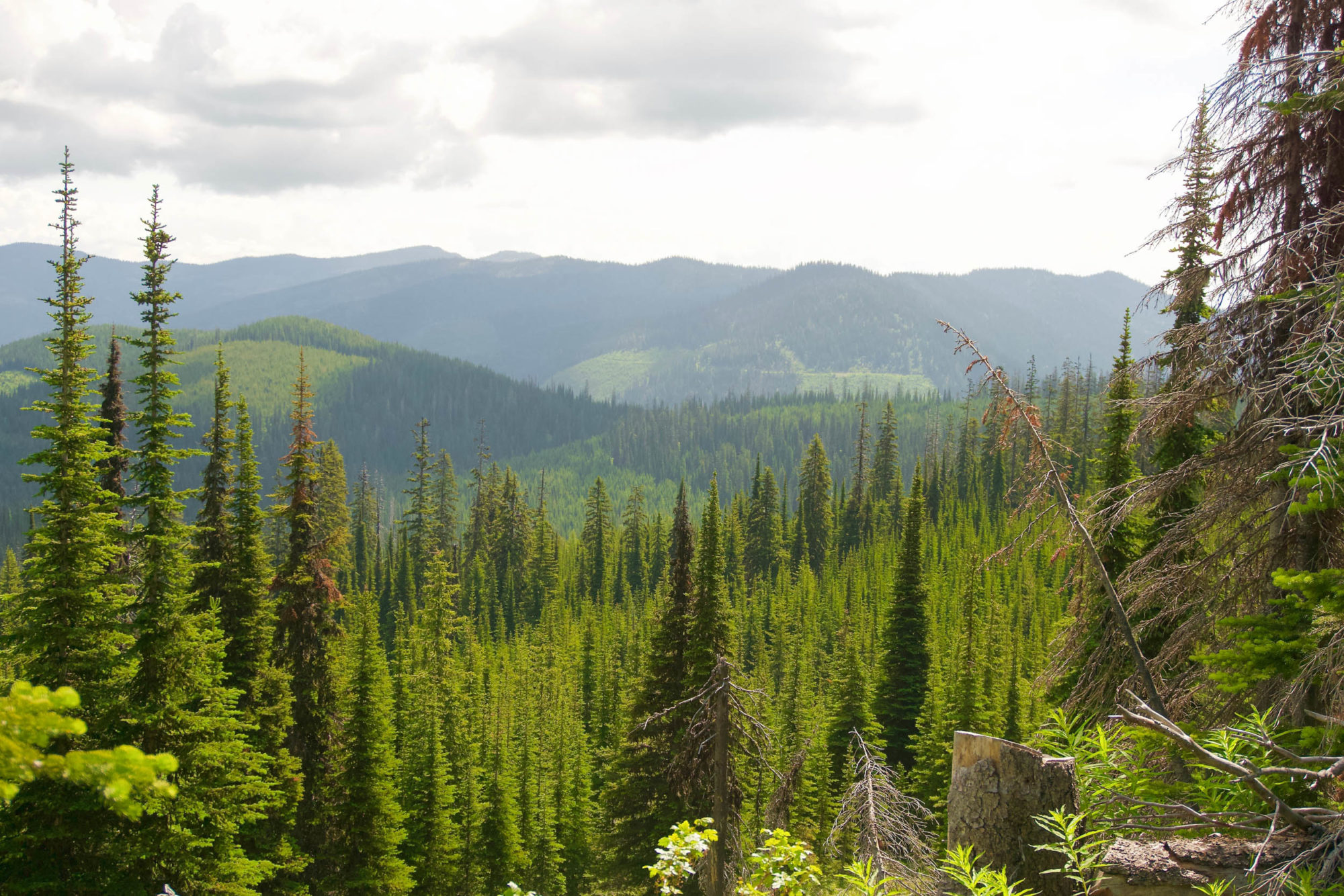
At a picnic table by the lake outside the ranger station, with maps and coffee and still the light drizzle, we made a last plan: bike over the Whitefish Range to the Canadian border, packraft the North Fork of the Flathead along the western boundary of Glacier, then traverse the Whitefish Range again by bike, back to where we began. A ride through public land, to where our country changes to another, paddling the water that designates the boundary of a national park.
That night, we parked at a fork in two forest service roads, the spot we’d decided would close our loop. We pulled off at a faint shoulder, and in full sun, started unloading from the back of the truck into the weeds. I sorted gear on our plastic beach mat in the grass, sometimes with the company of dirt bikes and their dust and gravel. I couldn’t see the faces hidden behind the helmets.
We usually planned trips to the corners of the map where roads were few, or ended, or only had traffic of old pickups that drove by rarely and too fast. There in the dust, I was reluctant.
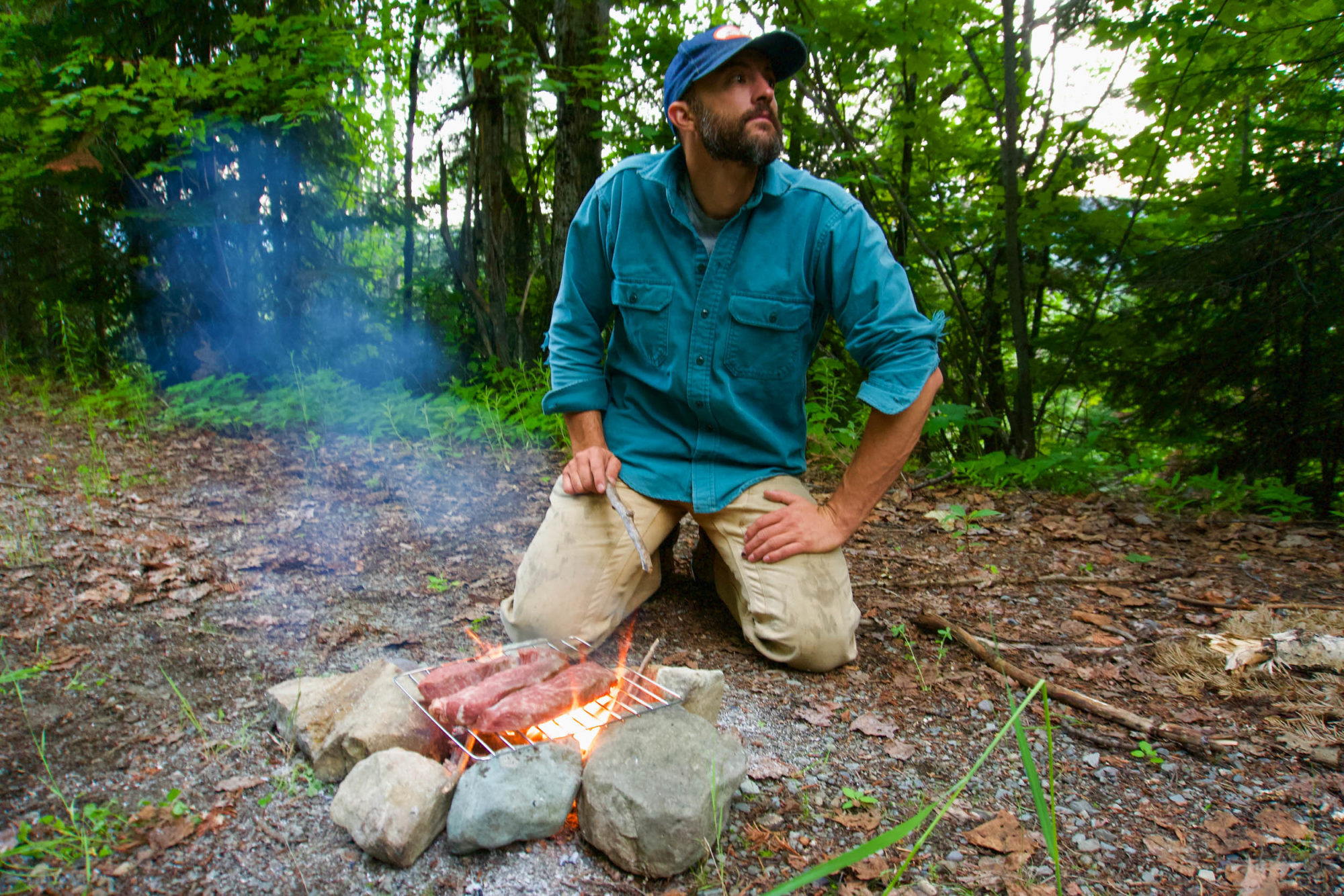
We slept on the side of the road, made a tiny fire, grilled cheap steaks and corn tortillas, ate the last of the arugula already soft from the heat. Then a few gummy worms. In the morning we packed and packed, started biking the flat miles toward Red Meadow Lakes, then lost the crowds at the sprawl of the campground. We climbed the Whitefish Divide the rest of the morning, in the sun and sweating, dripping, baking, stopping to breathe in the shade. Climbing and climbing.
At one stop we met Max, riding since Mexico for 22 days, polite and from Maine, and who we later learned was riding the Tour Divide, or so some cyclists told us. Four candy bars until Eureka, he said. He missed breakfast in Whitefish and had a bag of Lays bungeed to his seat bag. We were laden with PFDs, boats, and instant potatoes, hot and breathing heavy in the sun. We wished him well, and he wished us the same, and we waved as he continued on.
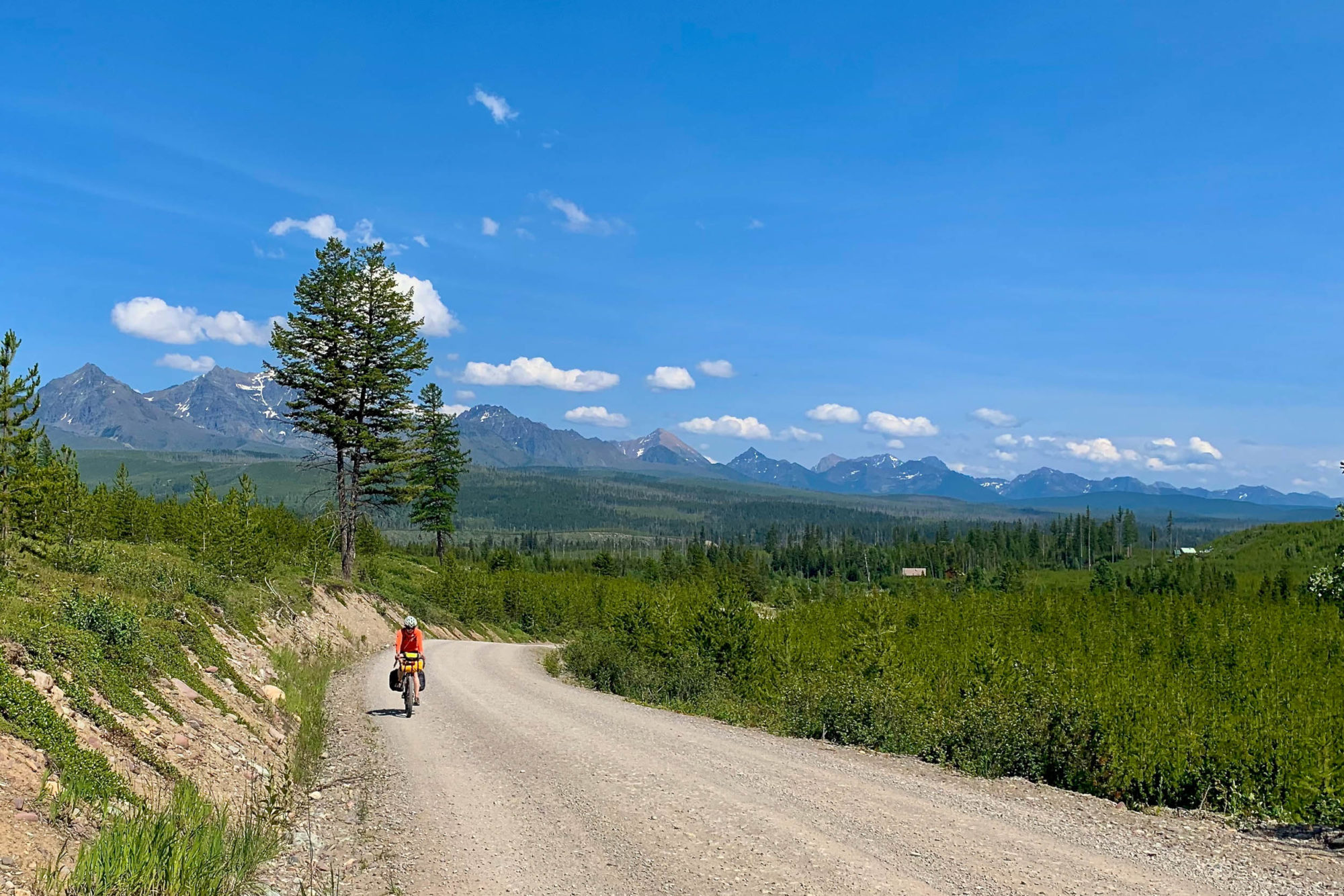
We rode on through the burn regrowth, the narrowing mud road, the quiet and lush cedar forests. We pushed on, past the next set of lakes, aqua blueish and surrounded by beargrass. Then down, down around curves and washboards and amidst swarms of mosquitoes. We stopped for food and hopped about eating trail mix, smiling, swatting, then hurrying downhill for the afternoon until the intersection with North Fork Road. Stopping again for jerky, a few photos, then north along grassy wide shores, wildflowers, and green pools. To the border. Where I sat with my hair matted to my face.
The next morning we balanced our bikes on our packrafts for too long. Rigging, rerigging, trying again. My boat leaned hard left in the water. I rerigged. I swore. I shed layers, still swatting mosquitoes. We watched a father and daughter haul inflatable kayaks off their truck and down to the launch while we shuffled gear. They waved as they paddled off. I like tidy loads and tucked away straps. I had too much. And I knew it.
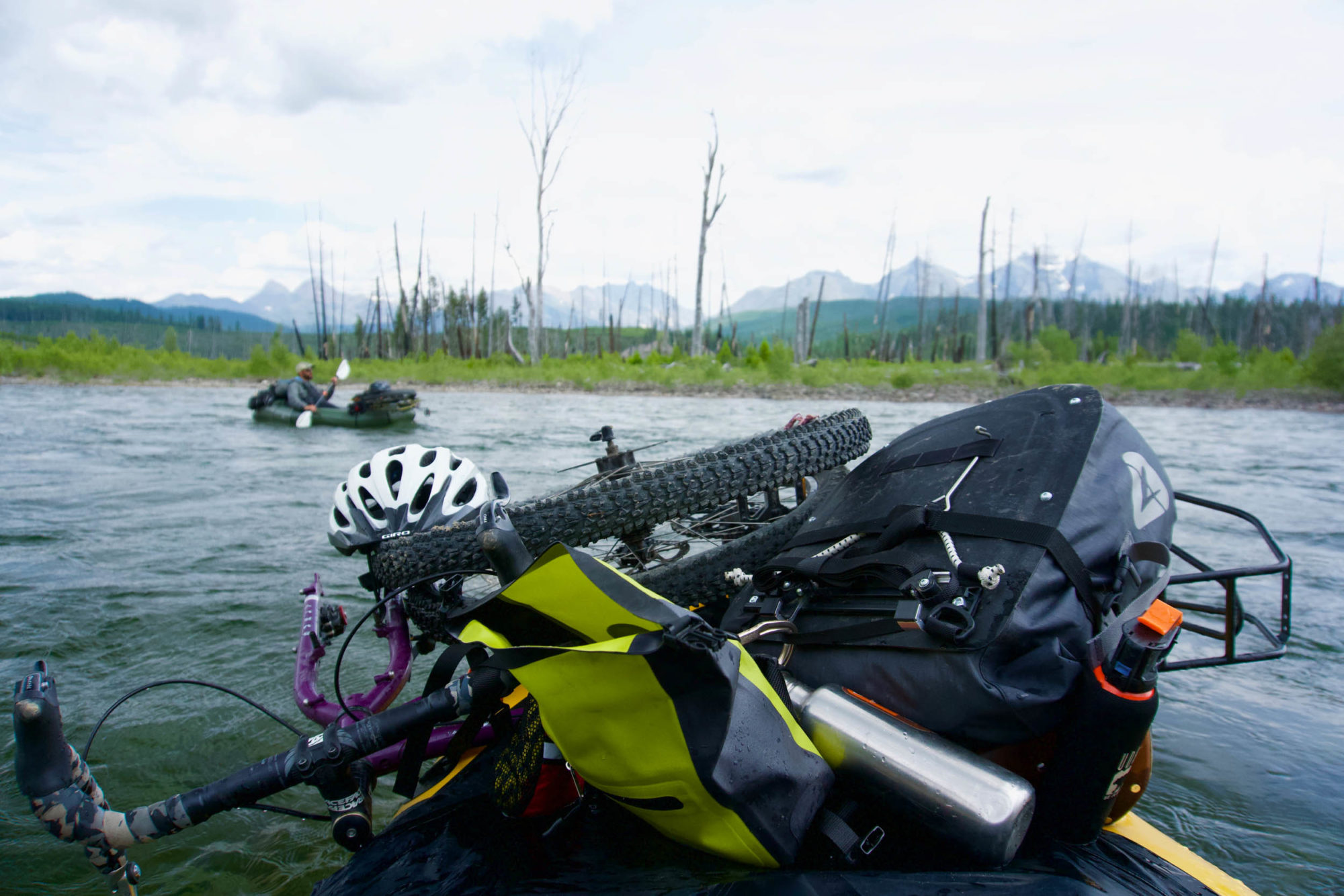
But after the balancing settled, the transition from land to water opened in me like a door. Launching always does that, separates me from land, untethers me suddenly. The shift to water, when I lift my foot and push into the current, slides one perspective into another.
Our boats softened in the cold water, and heavy with bikes, folded just enough to take on water in the first rapids. The family had paddled on or had taken another braid of the river, and for hours, the rest of the afternoon and into the evening, we saw no one.
I stared into the thickness. The peaks of Glacier breathing deep in the distance, the tamaracks and cedars and Douglas firs leaning toward the water, and just easy turn after easy turn through green water. The river rushing but still steady, sometimes moving past low yellow embankments, sometimes through a tunnel of trees. We paddled and drifted, in shorts and rain pants, stopping too often to pee, eating cashew clusters and more jerky and the raspberry chia Kind bars we learned we love that day.
We camped on a gravel bar at the base of a high cutbank and watched the sunset through a fast rainbow. The sun stays long in midsummer, and we lingered with another little fire and dinner, just watching the water, the mergansers, the forest for elk or bears. The quiet of the backcountry on the riverbank, with bikes still strapped to our packrafts, builds pause. Knowing miles behind, considering the miles ahead, the evening becomes a pocket of in-betweens.
The last stretch of river passed quickly and easier the next day, with bigger creeks adding more water and the valley opening wide. We knew the river was paralleling the road close by, and we followed the topo lines along the horizon to spot the saddle we’d next head toward.
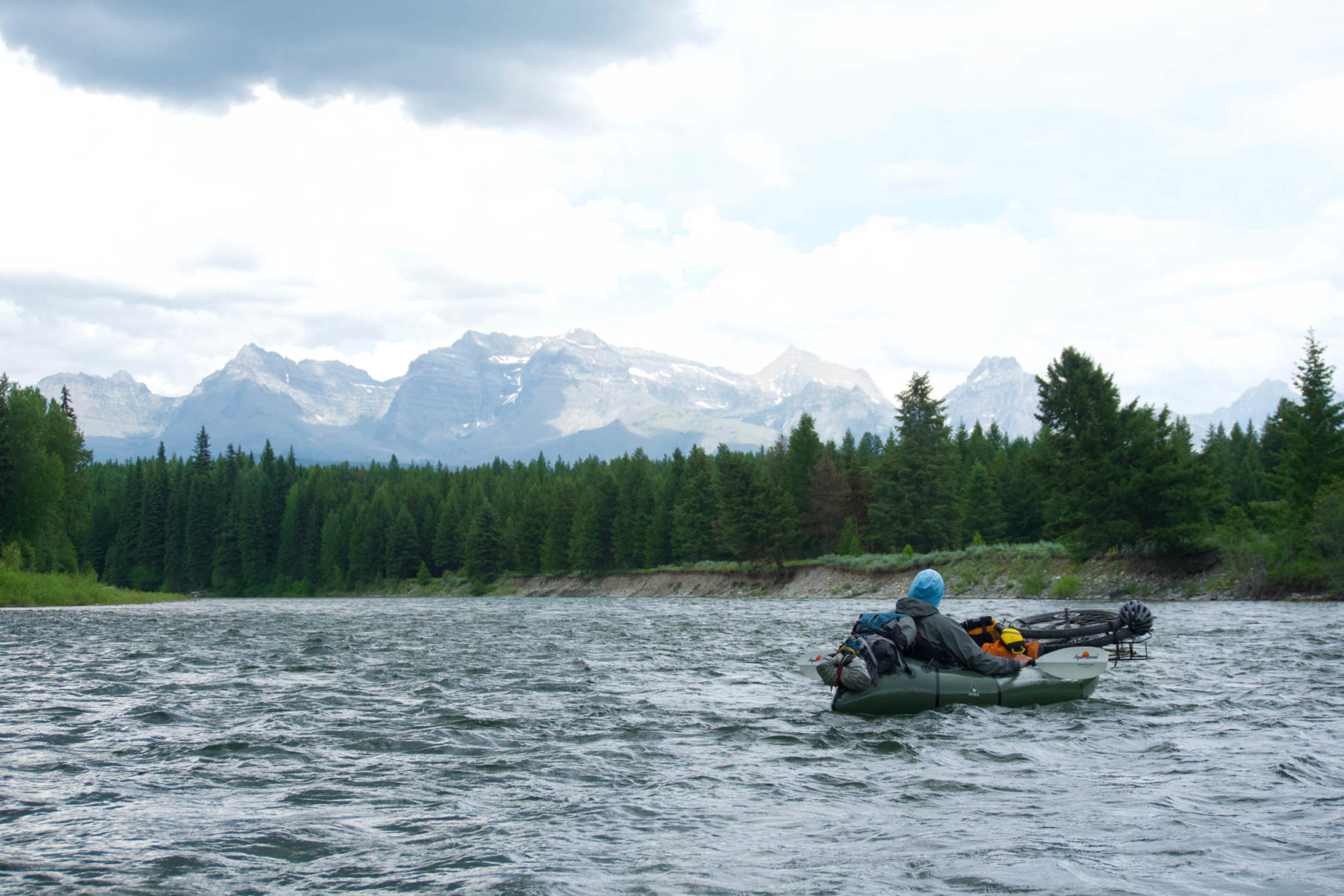
On a wide rock bar at a big eddy and a public access, we stopped. We spread everything on the rocks, unstrapping panniers, bike frames, dry bags, the sleeping pads used as boat seats that were soaked through. Then the wheels went back on the bikes, and we rolled the boats and strapped them to the handlebars. A transition from one means to the next. When reorganizing becomes transformation.
We rode the rest of the day along more gravel, first up through exposed burn and full sun, then past a locked gate into full coverage of forest. It was hard to say why the road was closed to motorized use in July, but the calm of the upward climb came as reprieve. I looked ahead over and over, only as far as the next bend. Even amid the confused enjoyment of the push and the heat, I always hold on to the hope for a pause.
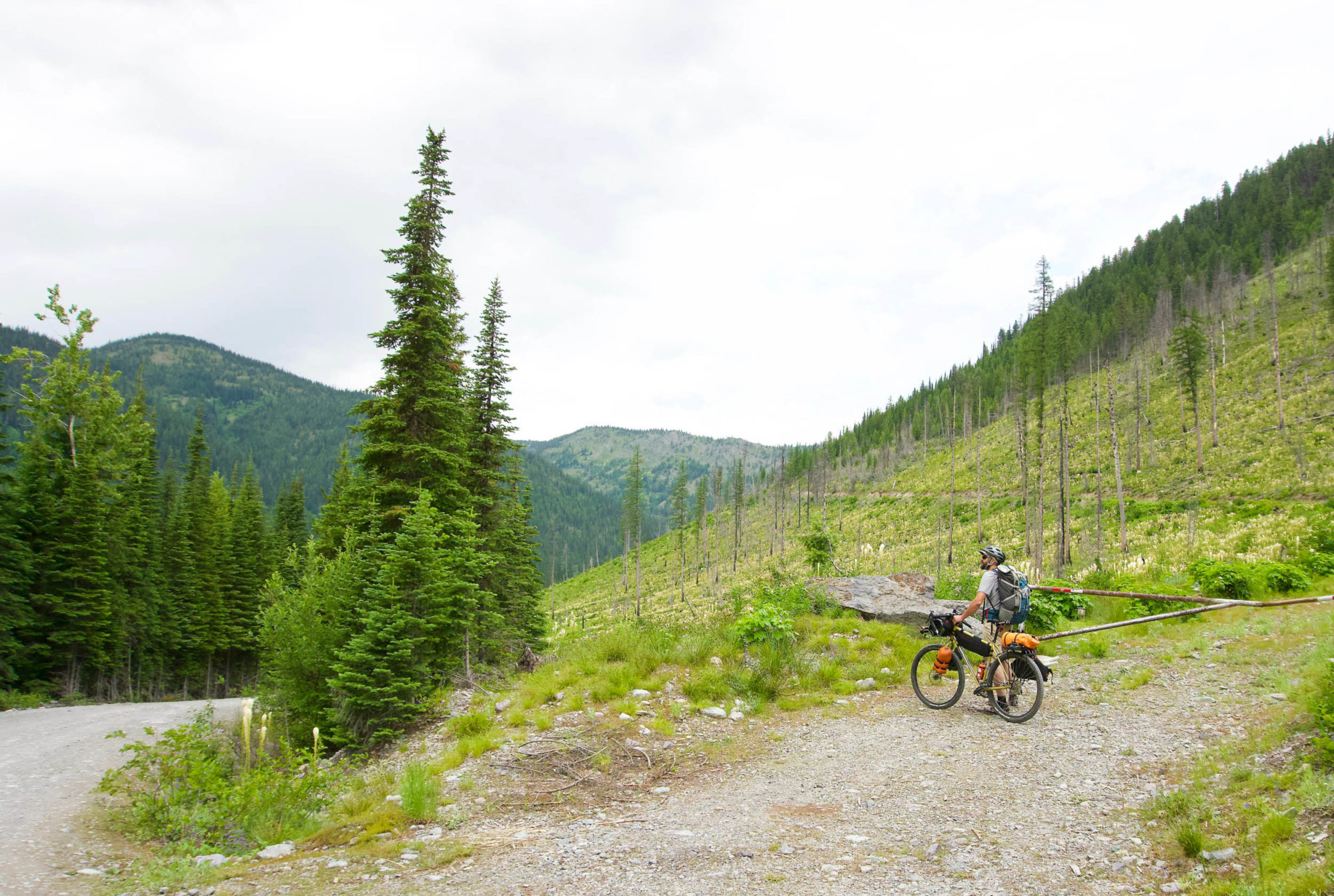
We found a grassy stretch for the tent at a hairpin turn, and I bashed into the forest for water, again in my raingear, for bugs, and sanity. A logging truck passed at breakfast with a rumble that built early in the distance, but otherwise, we saw no one again, for the rest of the climb. The views from the pass, the loose hand-numbing descent lasting through the afternoon, the lupines across the exposed regrowth, all to ourselves.
Some trips end expectedly with a familiar feeling of return. Knowing where you are and where you’ve been and whether you did or didn’t get what you’d expected. But we came back to the truck suddenly, and I was disoriented. I’d followed the topo, knew the roads and river miles, but the pieces of the trip connected like longer moments out of pace with the days. Bike trips and river trips and backcountry trips cut into frontcountry camping. The going and returning routine I otherwise built was out of sync.
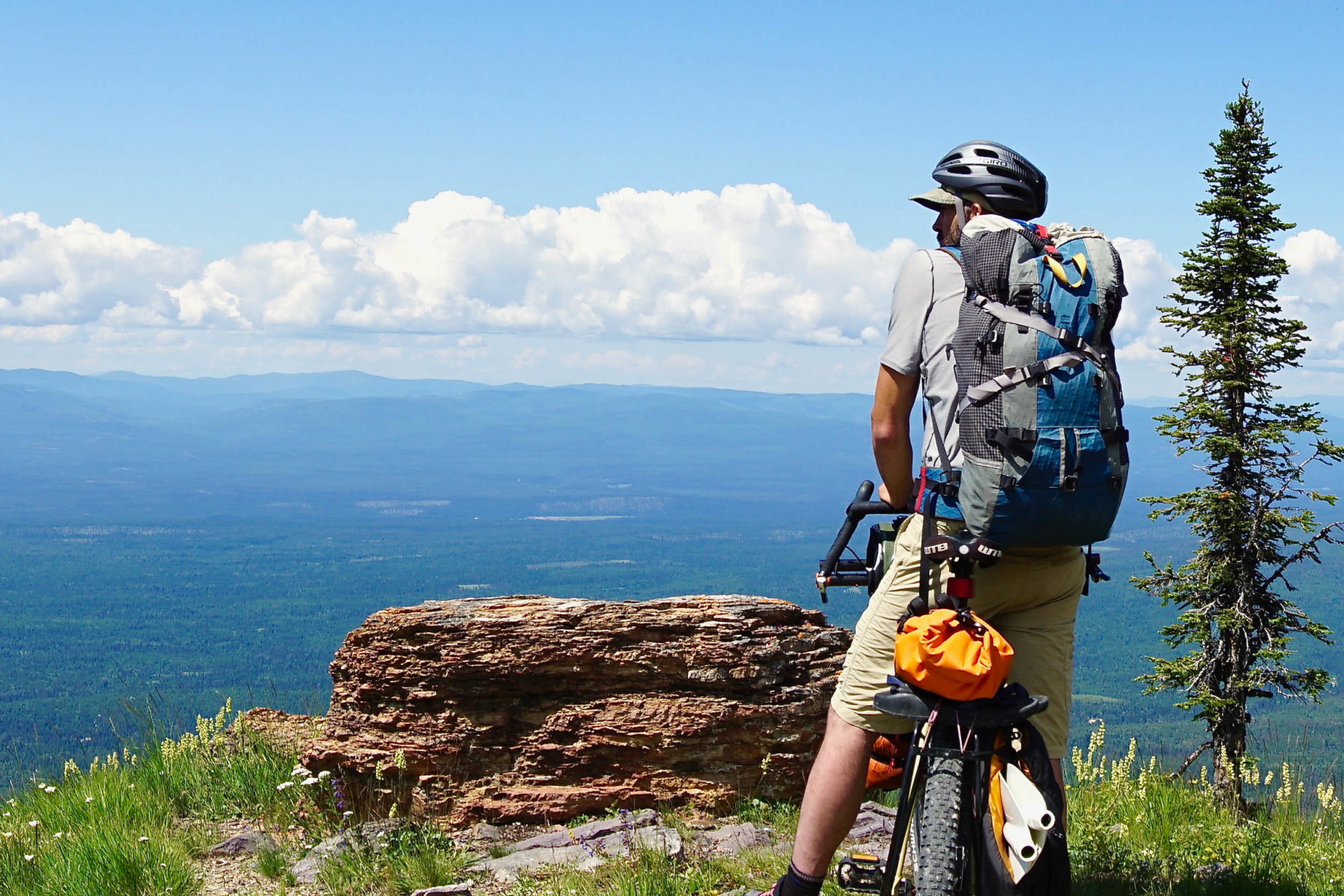
We found road ends and boat launches and silent river camps. At the Canadian border, along Glacier, into the national forest. All where we expected, and all where we didn’t. We redirected, transitioned, packed too much, and started at the fork we found. I surprised myself. I let things change. I trusted that we’d start from where we were.
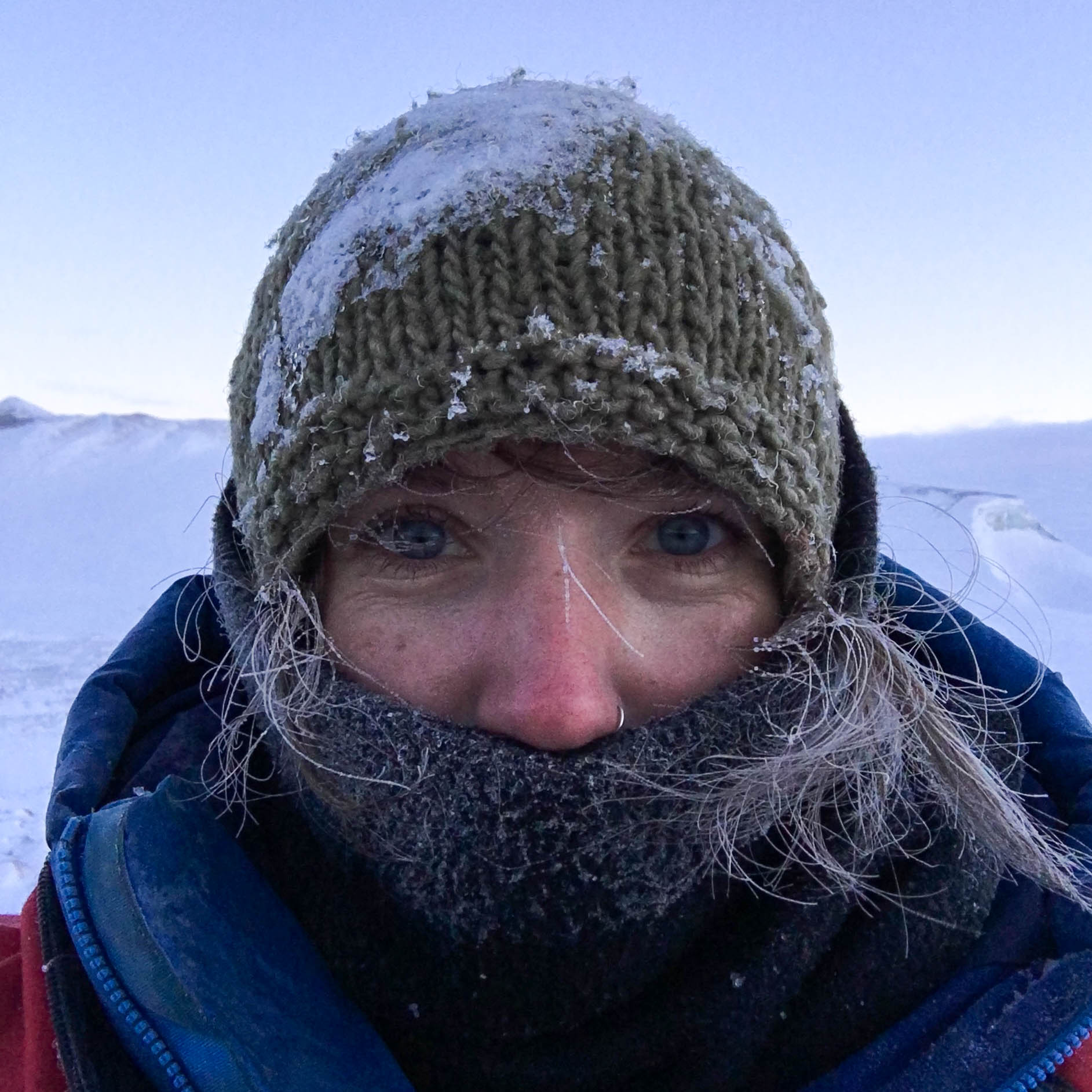
About Tara Kramer
Tara Kramer has spent just over a decade working at field sites in Greenland, Antarctica, and Canada for the U.S. Polar Programs and Polar Bears International. She’s written for Alpinist, Patagonia’s The Cleanest Line, Alpacka Raft, The Whitefish Review and a handful of other publications. She’s currently based in Livingston, Montana, with her longtime love, Nick. Check out her website at TaraKramer.com.
Please keep the conversation civil, constructive, and inclusive, or your comment will be removed.




